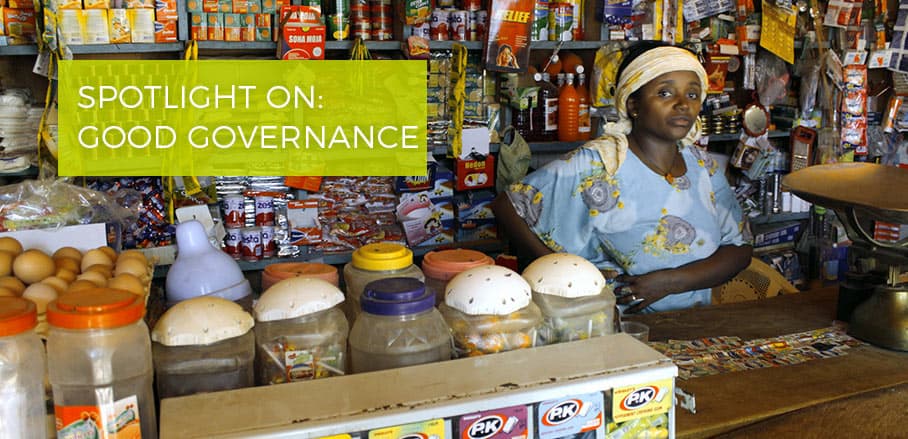UN-Habitat’s Integrated Municipal Finance Programme – Part 2
You can read Part 1 of this article here.
UN-Habitat promotes sustainable urbanisation globally. The municipal finance programme is fast becoming one of its most critical focus areas. The programme is witnessing an exciting evolution in Kenya that offers lessons for local governments worldwide. Marco Kamiya, UN-Habitat’s Chief of the Urban Economy and Finance Branch describes the challenges cities face in their efforts to advance the sustainable development agenda.
Valuable Lessons Learned
What have we learned from these projects? We have identified several constraints related to municipal finance, governance, and planning at differing levels. These constraints and lessons learned are applicable to our work in Kenya and within developing countries globally:
Multilevel governance
- Constraints: Overlapping mandates at the city, county, metropolitan, and national levels without a clear division between local and regional infrastructure.
- Actions: Strengthen the interplay between different layers of governments, promote dialogue between cities, regional, and national governments. Continue improving our understanding of metropolitan finance1See UN-Habitat’s Regional and Metropolitan Planning Unit, and refer to Farvaque & Kopanyi eds. (2016) “Municipal Finances: A Handbook for Local Governments” World Bank; Bahl, Linn, & Wetzel eds. (2013) “Financing Metropolitan Governments in Developing Countries” Lincoln Institute of Land Policy; Gómez-Álvarez, Rajack, López-Moreno, & Lanfranchi, Gabriel eds. “Steering the Metropolis: Metropolitan Governance for Sustainable Urban Development”, IADB, UN-Habitat, CAF..
Insufficient technical resources
- Constraints: Lack of human resources as tasks are sometimes overwhelming; a trained accountant must take care of finance, planning, and other issues simultaneously as they arise daily[2]See UN-Habitat (2010) “Challenges of Municipal Finance in Africa: Special Reference to Botswana”, and UN-Habitat (2017) “Finance for City Leaders Handbook: Improving Municipal Finance to Deliver Better Services”..
- Actions: Supporting local city staff with training and providing knowledge networks, instead of just replacing staff by consultants as—as it usually happens with development projects—or the project will fall apart when funding finishes. Strengthening and supporting senior professional staff in promoting municipal finance serves to improve the overall functioning of local government.
Scarce resources to design financial instruments (municipal bonds or PPPs)
- Constraints: Personnel at the county level are too busy or they do not possess the capacities to supervise and monitor financial instruments.
- Actions: Continue to support the design of these instruments in more mature cities, after they have improved their technical capacity for basic financial management, accounting, legal frameworks, and urban planning.
Lack of municipal finance data
- Constraints: No database to understand and compare municipal finance data at subnational level, in particular from the city-centred perspective.
- Actions: Produce a Global Municipal Database and integrate Global Planning Data[3]See UN-Habitat’s Global Municipal Database (GMD) this database captures data at micro-level, requesting the municipalities and cities to provide the information, UN-Habitat is integrating this with the Global Urban Observatory so revenues and finance may be linked to land issues and planning. On subnational finance database using national accounts an important contribution is the SNG-WOBI by OECD. to support city leaders to manage municipal finance and to negotiate with their central governments.
Absence or lack of clarity on Institutional, legal and financing mechanisms framework
- Constraints: Improve or create the legal conditions for the private sector to invest in public projects[4]See New Urban Agenda’s Policy Paper on Urban Governance, Capacity and Institutional Development (Feb 29, 2016), GIZ (2014) “Metropolitan Regions: Definitions, Typologies and Recommendations for Development Cooperation”., and simultaneously support staff to expand own-source revenues. This way, legal tools will be matched with financial resources and skills will incrementally improve.
- Actions: Continue showcasing financing projects to expand global awareness of the potential for own-source revenue generation and local government financing.
Our approach has been confirmed and informed by our practical experience. In 2019, after five years and dozens of projects we continue to be approached by counties in Kenya and cities around the world who are requesting our support in the areas of revenue generation, own-source revenue improvement, and data generation. City leaders are increasingly asking that we facilitate linking municipal finance to urban planning. Further, as a result of our work city leaders are now more aware of the need to link private investment with strong legal frameworks. Whilst the constraints are not solved neither in Kenya nor on the global level, evidence from our interactions in 2019 reveals that knowledge on what really needs to be done has advanced significantly in the public sector.
UN-Habitat’s experience in the area of municipal finance in Kenya demonstrates that we need to be persistent in our work and integrate different perspectives and agencies with an understanding that finance and urban challenges are multidimensional. Development is a learning-by-doing process where we assist local city leaders to advance through facilitating their work.
The author would like to thank staff and senior consultants of UN-Habitat’s Urban Economy and Finance Branch, specially Ananda Weliwita, Yoel Siegel and Mary Chege. This article is a technical view and does not necessarily reflect the position of UN-Habitat. The author acknowledges the contribution of other branches of UN-Habitat in the implementation of projects mentioned in the paper.
- UN-Habitat’s Integrated Municipal Finance Programme – Part 2 - 22. August 2019
- UN-Habitat’s Integrated Municipal Finance Programme – Part 1 - 20. August 2019
